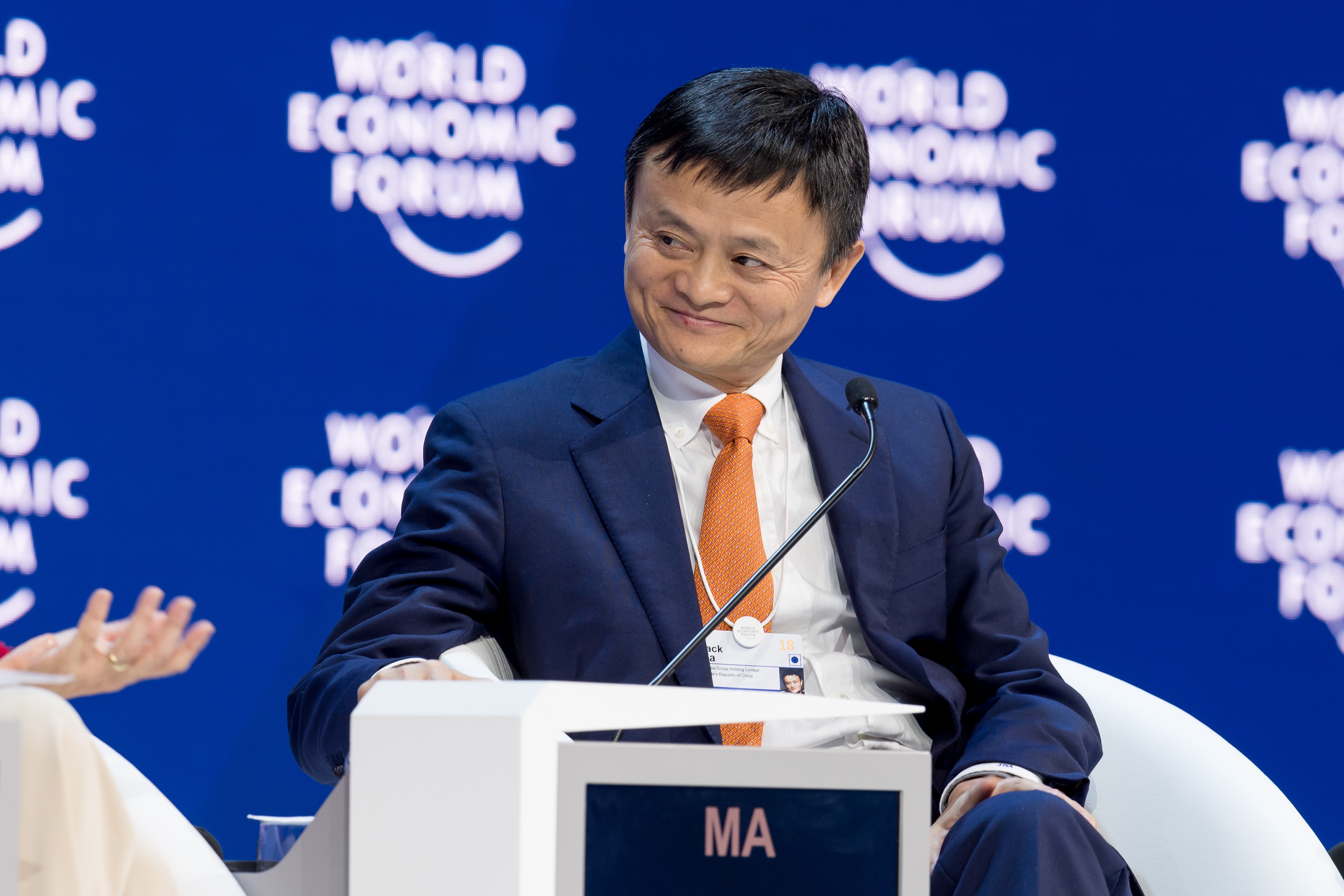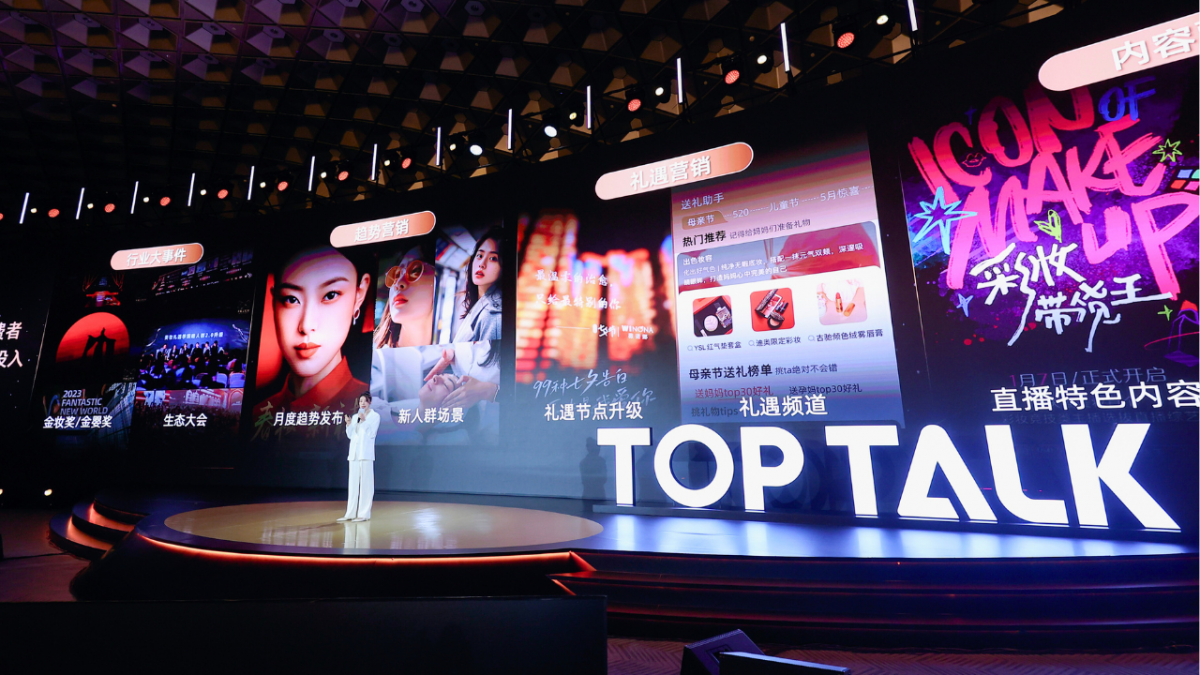
When trade stops, war starts.
Jack Ma’s now-familiar refrain was a key point of discussion at this year’s World Economic Forum meeting in Davos, Switzerland, as the Alibaba Group executive chairman called on global leaders to resist the current rise in protectionism around the world and instead double down on the policies that make globalization and free trade possible.
“It’s so easy to launch a trade war, but it’s so difficult to stop the disaster of this war,” Ma said during a panel discussion on Wednesday entitled, “Enabling eCommerce: Small Enterprises, Global Players,” which emphasized the need to bring small businesses from their local economies into the global economy.
“Don’t use trade as a weapon, use trade as a solution to solve problems,” he said.
WATCH: Jack Ma speaks at WEF 2018 in Davos.
Speaking alongside World Trade Organization Director General Roberto Azevêdo, Peru Prime Minister Mercedes Araoz and Therese Fernandez-Ruiz, the president of Filipino social-enterprise start-up Rags2Riches, Ma pushed back against notions that globalization was bad for the world economy. Instead, he said, cross-border trade, especially via the internet, was the future.
“In the future, no matter if you like it or you don’t like it, we will enable every young person and small business to buy globally, sell globally, and deliver globally, pay globally, and travel globally,” said Ma.
“This is the trend. Nobody can stop it,” he said.
Ma has been working to make sure those young people and small businesses will be able to participate in that trend. Last year, he created the Electronic World Trade Platform (eWTP), envisioningan open, international organization of relevant stakeholders with the goal of developing best practices to simplify regulations, lower barriers to entry to new markets and provide small businesses with more accessible financing.
The eWTP concept gained support from the WTO in September 2016, with Azev√™do saying trade “must work for SMEs” following a meeting with Ma at Alibaba headquarters in Hangzhou. The idea was also endorsed that month by the G20 summit as a business-led, government-supported initiative when it included the eWTP in its official communiqu√©. In November, Malaysia became the first country to launch an eWTP e-hub outside of China.
Last month, the eWTP, WTO and WEF announced the creation of the Enabling E-commerce Initiative to further promote inclusive trade by bringing together leading voices from governments, businesses and other stakeholders to work toward removing the hurdles for small businesses that want to participate in global trade. The initiative would help these stakeholders to better understand and facilitate e-commerce in their respective areas.
Ma emphasized that e-commerce was a viable solution for economic development, saying it was not the sole purview of big companies but rather helped developing countries, young people and small businesses as well. His points were echoed by the WTO’s Azev√™do, who called for more streamlined regulations and processes so that small businesses could enjoy the benefits of globalization.
“If you want to make it inclusive ‚Ķ we need to make it simpler,” Azev√™do said. “That is the conversation we need to have. Without it, it’s going in the wrong direction.”
Rags2Riches’ Fernandez-Ruiz said that such an initiative would be critical for small businesses in developing countries such as the Philippines. Her company, which helps artisans in disadvantaged communities achieve scale and sustainability through skills training and access to new markets, was started to help these enterprises overcome hurdles. E-commerce is one important way to do so, she said.
Still, her clients regularly run up against problems in logistics, payments and trust between buyers and sellers online, and therefore more advancements were needed to grow these artisans’ customer base and lift them out of poverty. “Imagine if these barriers are not there anymore, imagine the impact,” Fernandez-Ruiz said.
Prime Minister Araoz highlighted the role that governments should play is supporting these businesses. She said her administration had brought a host of administrative functions for enterprises, including registration, tax payments and access to credit, to make conducting business “user-friendly,” she said.
“I think we as a government [have] to help our enterprises to be promoted, otherwise ‚Ķ the market will be taken by big and large ecommerce retailers. And we don’t want that,” Araoz said. “We want them to be moving with other smaller firms all together.”
Ma warned against overregulation, however. He pointed to the lack of regulation in China as Alibaba launched and grew as a key reason for the company’s success. And he pointed to Russia’s ability to handle 1 million packages a day delivered from China as an example of how other countries have learned their own lessons in building capacity without the burden of overregulation. That’s a significant improvement from five years ago when the Russian post office buckled under the weight of just 80,000 packages a day, he said.
“Governments are learning, people are learning, entrepreneurs are learning, when there is a demand, there is a way,” Ma said. “So I think government should not think about how to regulate.”




